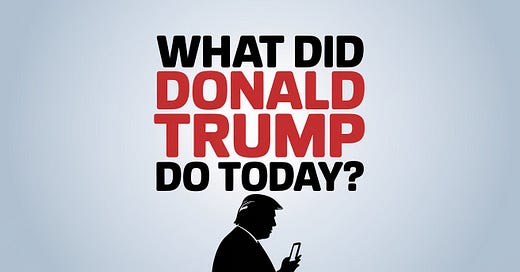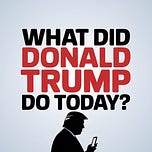The recent series of actions and communications by the Trump administration paints a portrait of governance driven by ideological performance, executive overreach, and aggressive messaging. Press Secretary Karoline Leavitt’s latest briefing exemplifies this, adopting a combative, campaign-like tone that highlights inflated accomplishments, glosses over critical details, and sidesteps accountability. Economic claims were exaggerated, civil liberties concerns ignored, and foreign policy contradictions left unresolved. A new media strategy aimed at bypassing traditional press further narrows the administration’s echo chamber. Simultaneously, Trump’s National Security Presidential Memorandum escalates border militarization, framing immigration as a national security threat and blurring the line between civilian law enforcement and military authority—while undermining legal safeguards and federalism.
President Trump’s remarks aboard Air Force One did little to inspire confidence, featuring fragmented responses and vague assertions about serious topics such as diplomacy and judicial rulings. The administration’s controversial directive to mark over 6,000 immigrants as “dead” in federal databases exemplifies its broader effort to weaponize bureaucracy against migrants, bypassing due process and drawing sharp criticism from legal experts and lawmakers. The Social Security Administration’s pivot to using X as its primary communications channel—coupled with staff cuts—has compounded accessibility concerns, especially for vulnerable populations, and reflects a pattern of centralizing power while dismantling institutional transparency.
In the courts, the administration has faced a string of legal setbacks. A federal judge condemned the deportation of Kilmar Abrego Garcia despite a judicial stay, exposing tensions between the executive branch and judicial oversight. Separately, Trump’s deal with major law firms to exchange pro bono services for regulatory leniency raises troubling questions about the politicization of legal practice and executive coercion. Meanwhile, a federal court blocked the administration’s attempt to withhold funds from Maine over transgender sports policy, deeming it an unlawful and unethical abuse of federal power. Across these developments, the Trump administration appears intent on using state mechanisms to enforce ideological conformity, often at the expense of legal precedent, human rights, and democratic norms.













Share this post